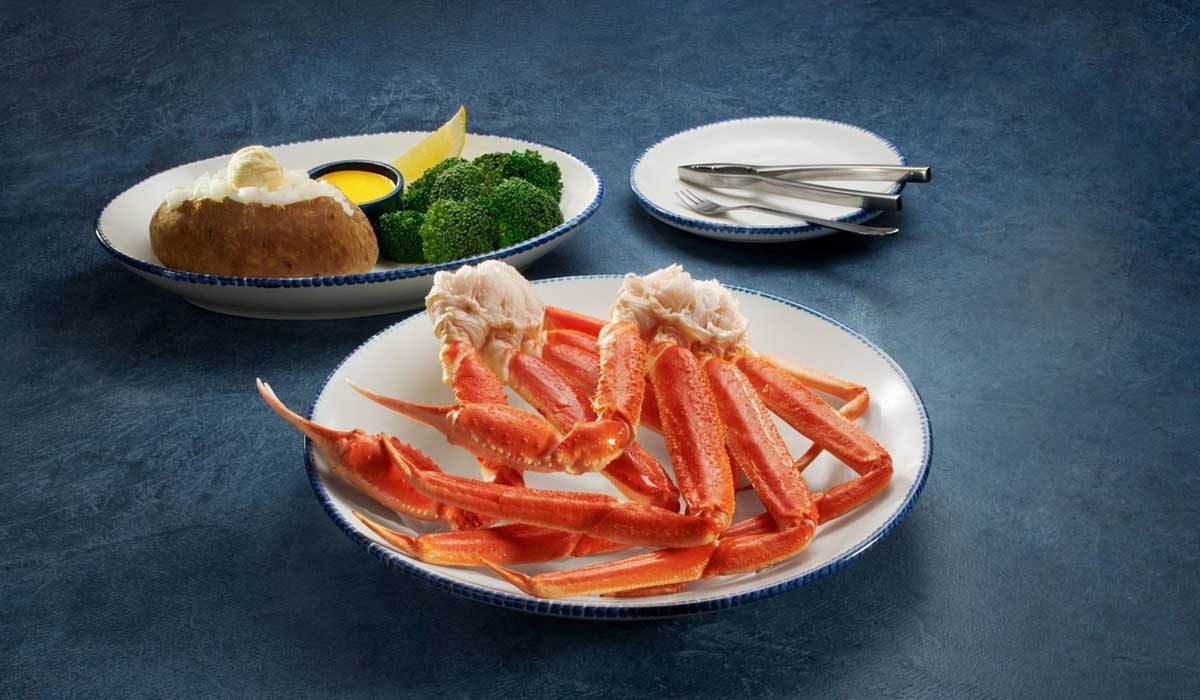Golden Gate Capital announced Monday it’s agreed to sell its remaining equity stake in Red Lobster to a consortium of existing brand investor Thai Union and Red Lobster management.
Golden Gate Capital, which also directs Bob Evans and California Pizza Kitchen—the latter of which declared bankruptcy in July—took Red Lobster private in 2014 from Darden through a $2.1 billion deal.
In 2016, Thai Union made a $575 million minority investment. The company, known for its “Chicken of the Sea” product, was involved with Red Lobster on the supplier level for more than 20 years. Thai Union added two representatives to the Red Lobster board of directors in 2016 as well.
The new investor group will be labeled “Seafood Alliance,” and include shareholders Paul Kenny and Rit Thirakomen. Kenny was the CEO of Minor Food, one of Asian’s largest restaurant companies with 2,000-plus outlets in 27 countries under The Pizza Company, The Coffee Club, Riverside, Thai Express, Benihana, Bonchon, Swensen’s, Sizzler, Dairy Queen, and Burger King brands. Thirakomen is the chairman, CEO, and controlling shareholder of Thai restaurant chain MK Restaurant Group.
“We are thrilled to deepen our relationship with Thai Union, a long-term strategic supplier to Red Lobster and an investment partner for the last four years,” Red Lobster CEO Kim Lopdrup said in a statement. “Our organization will also benefit from the tremendous international restaurant and hospitality expertise brought by Seafood Alliance. I want to thank Golden Gate Capital for their unwavering support over the past six years and particularly over the past five months.”
Financial terms of the transaction were not disclosed. Thai Union is a publicly traded global seafood supplier with an enterprise value of about $4 billion.
“As an anchor investor in Red Lobster since 2016, we are excited to confirm our commitment to the business, which reflects our utmost confidence in management and the company’s strategy of serving top quality seafood for a great value,” Thiraphong Chansiri, president and CEO of Thai Union, said in a statement. “The Red Lobster brand is strong, with unmatched awareness and millions of loyal guests, and we believe it has tremendous long-term potential. We look forward to capitalizing on that solid base, as well as leveraging Seafood Alliance’s restaurant expertise and international relationships, to continue to develop the brand domestically and internationally.”
This suggests Red Lobster’s current management team will remain intact.
Earlier in the month, per a report from Debtwire, Red Lobster was exploring strategic options after facing “unprecedented challenges resulting from the COVID-19 pandemic.” The casual chain engaged adviser Guggenheim, sources familiar with the situation told Debtwire.
Red Lobster confirmed Monday Guggenheim is serving as financial adviser and Kirkland & Ellis LLP and Nob Hill Law Group, P.C. are serving as legal advisers to Golden Gate Capital.
At the time, Debtwire said, Red Lobster was dealing with earnings pressure and near-term maturities. It had a $380 million term loan coming due in July 2021.
As of February 23, Red Lobster had about $216 million of unrestricted cash, the report added.
Red Lobster had nearly $2.5 billion in U.S. sales in 2019—a 2.1 percent year-over-year decline. It also dipped to 670 domestic restaurants from 675, according to FoodserviceResults. Average-unit volumes fell to $3.494 million from $3.550 million. The sales figure put Red Lobster at No. 10 in this year’s FSR 50 ranking of the country’s top-grossing full-service chains, ahead of The Cheesecake Factory, LongHorn, and Red Robin.
In March, Moody’s Investor Service downgraded its rating of Red Lobster to Caa1 (poor quality and high credit risk) and handed it a negative ratings outlook. It also downgraded Red Lobster’s senior secured bank credit facility to Caa1.
Moody’s said at the time a maturity of a $150 million asset-based loan was extended to December 31 from June 21.
“We have enjoyed a highly successful partnership with Red Lobster and are proud to have worked collaboratively alongside Kim Lopdrup and the management team since 2014, achieving strong returns for our investors. With a strong liquidity position, we know the business is in great hands and look forward to cheering the team on under new ownership,” added Josh Olshansky, a managing director at Golden Gate Capital, in a statement.
Red Lobster rolled a bevy of changes since COVID-19. It introduced touchless delivery and curbside pickup for to-go orders, as well as new menu innovations like Family Feasts, which feed a family of four for as little as $7 per person.
Currently, 99 percent of company-operated Red Lobster stores are open for to-go and delivery, and 88 percent of dining rooms are open.
For guests dining in, Red Lobster is offering single-use paper menus and QR code-enabled menus that can be read on a mobile device. Guests can also pay contact-free via Apple Pay or by credit card on Presto tablets at each table and sanitized for each party.
“I am proud of how our team has responded to the COVID-19 pandemic, always putting the safety of our guests and employees first,” Lopdrup said. “The pandemic has pushed us to rethink the guest experience, and we successfully rolled out new initiatives that allowed us to quickly and safely grow our off-premise sales. We are pleased that we have maintained off-premise sales at triple our pre-crisis levels even after reopening the large majority of our dining rooms.”
Red Lobster introduced new preventative steps as well, including wellness and temperature checks for employees.







